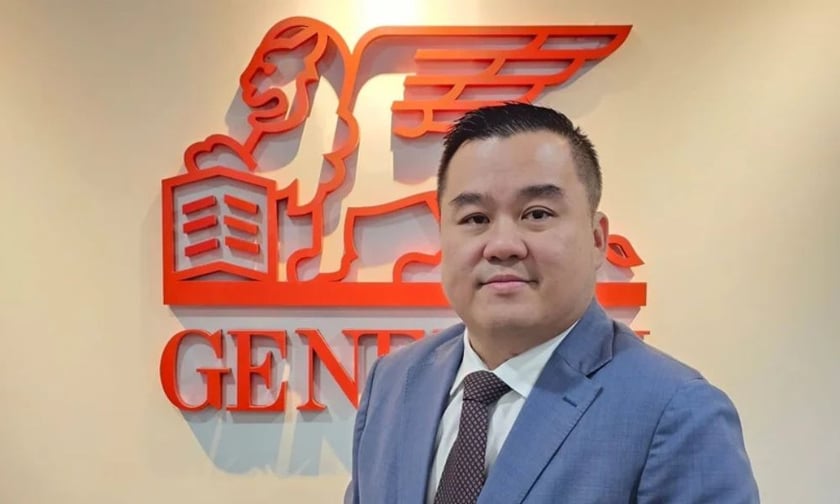

The Australian and New Zealand Institute of Insurance and Finance (ANZIIF) has appointed Dato’ Tan Kian Beng (Tan) as its new ambassador for Malaysia, marking another step in the institute’s efforts to promote insurance professionalism across the Asia-Pacific region.
Tan (pictured) has accumulated more than 23 years of experience in various areas of the insurance sector, such as underwriting, claims management, and risk surveying. He also holds an ANZIIF Fellowship and a Diploma of General Insurance from the institute.
In his capacity as ambassador, Tan will represent ANZIIF in Malaysia, collaborating with local insurance companies and professionals. His focus will be on advancing professional education for insurance practitioners in Malaysia and aligning local practices with global standards.
He views his ambassadorship as an opportunity to mentor younger professionals and advocate for higher industry standards.
“[I am to] bridge local industry practices with international standards, enhancing the capabilities of Malaysian professionals in the global insurance landscape,” he said.
ANZIIF CEO Katrina Shanks welcomed Tan’s appointment, emphasising that it underscores ANZIIF’s ongoing collaboration with Malaysia’s insurance sector.
“ANZIIF has a long history with the Malaysian insurance sector, and appointing a Malaysian ambassador reflects our commitment and passion to the region,” she said.
In an interview with ANZIIF, Tan highlighted the potential for growth within Malaysia’s insurance industry, noting that the nation’s insurance penetration rate stands between 4.5% and 5% of GDP, which is relatively higher than other regional markets.
He believes improving customer engagement, particularly through digital channels, will be key to expanding this further.
Malaysian insurers have increasingly focused on enhancing customer experience, such as streamlining claims and policy purchases through digital platforms. Insurers are also offering more personalised products and services to cater to evolving consumer needs.
Tan emphasised the rapid digital transformation taking place within Malaysia’s insurance sector, spurred by the COVID-19 pandemic and shifts in consumer behaviour.
According to the Fintech Malaysia Report 2022, the number of insurtech players in the country has doubled since 2019, reflecting the growing demand for digital insurance solutions.
Malaysia’s central bank, Bank Negara Malaysia (BNM), has been instrumental in supporting this transformation, introducing regulatory frameworks such as the fintech sandbox in 2016, which allows companies to test new financial solutions. The bank also launched an accelerated track to facilitate quicker approval for institutions that demonstrate strong risk management.
Tan said that while digital insurer licenses are now available, he does not anticipate major disruptions in the market. Instead, these licenses may allow new entrants to form cost-effective partnerships without requiring significant stakes in existing local companies.
The Malaysian insurance industry has undergone significant consolidation over the past few years, primarily due to the entry of foreign players.
Tan noted that the number of insurers has decreased from over 50 to around 20. He highlighted the role of international insurers, such as Generali Group, which expanded its operations in Malaysia by acquiring stakes in local companies.
Tan also discussed the challenges posed by Malaysia’s regulatory environment. Recent changes by BNM, such as the introduction of operating cost controls on intermediaries, have prompted insurers to adopt different strategies for managing costs.
Additionally, the phased liberalisation of motor and fire tariffs is expected to drive competition and innovation within the market, offering consumers more diverse coverage options at competitive prices.
The insurance industry in Malaysia is also adapting to the growing challenges of climate change. Insurers are developing new risk assessment models and policies that address environmental risks, including those related to renewable energy sources such as solar panels.
Generali Malaysia, for example, has introduced a new clause in its fire insurance policies that allows clients to repair or replace damaged property using environmentally friendly materials. This initiative reflects the company’s broader sustainability goals, according to Tan.
ANZIIF’s role in Malaysia’s financial sector has been further solidified by its inclusion in the Future Skills Framework (FSF), a national initiative aimed at enhancing talent across the financial services industry.
The FSF, developed in partnership with the Malaysian Insurance Institute (MII), focuses on providing continuous education and skill development programs.
